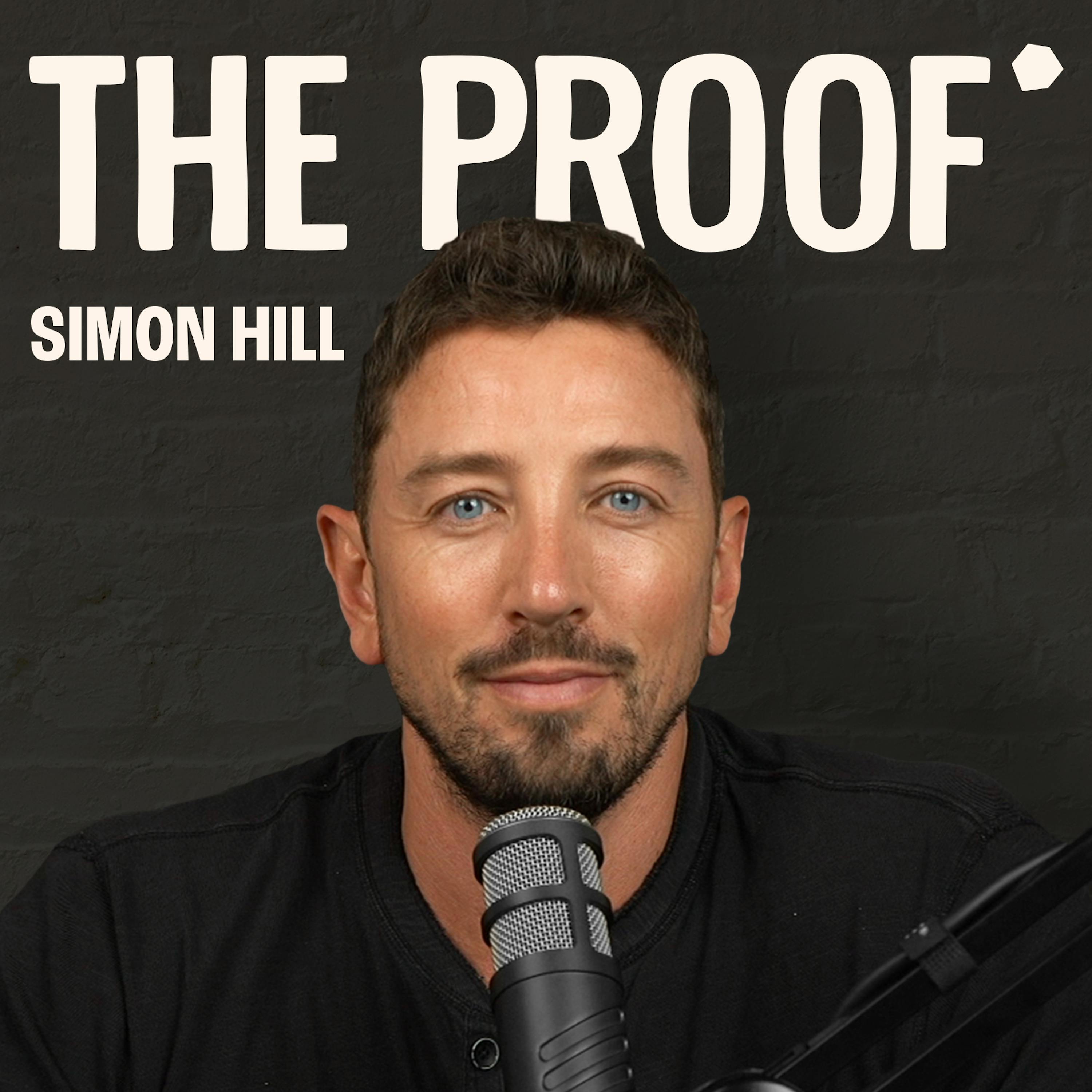.jpg)
The Plant Centered and Thriving Podcast
Welcome! If you're looking for plant-based inspiration, you've come to the right place! This podcast is here so you don’t have to feel alone on your plant-based journey. You'll hear from individuals who have taken the leap to go plant-based, why they did it, the struggles they faced, their words of wisdom for you, and how they're thriving now.
The Plant Centered and Thriving Podcast
What do you do when you know your doctor gives you the wrong advice? Our guest reminds us that we are our best health advocate.
"Use your voice. You know your body better than anybody else."
Have you ever felt the chill from the cold shoulder of medical professionals? That's the frosty reality Kathy, a seasoned dietitian from Anchorage, Alaska, warms us with on today's episode. Her tale is more than just about surviving the frigid temperatures; it's a harrowing journey through the complexities of health advocacy in the face of being misunderstood by those sworn to help.
Resources from this Episode:
"An American Sickness"
If you want to connect with Kathy, visit the following:
Instagram: @knunez1982
_____________________________________________________________________
WE WANT TO HEAR FROM YOU!
Have a question, suggestion or comment for the podcast? Fill out form here
Plant Centered Nutrition Essential Resources:
Welcome to the Plant-Centered and Thriving Podcast. I'm your host, ashley Kitchens. I'm a plant-based registered dietitian and virtual nutrition mentor. I was raised on an Angus Cattle Farm, grew up with a lot of GI issues and used the power of plant-based eating to promote healing. Here you'll find inspiration, ideas and encouragement for your own plant-based journey. I'm so thrilled you're here today. Let's get started.
Speaker 2:Welcome to the show Plant-Centered Listener. My name is Ashley and I am your host today. And today I have a very special guest and a very special story for you. Imagine going to the doctor. This is how the story starts out you go to the doctor, you're diagnosed with a diagnosis that you probably have and are started on a medication, no questions asked. This is what you're supposed to be doing. A few years later, you go back to the doctor and you're told that it's not an if but a when that you're going to get type 2 diabetes, that it's basically inevitable. There's nothing you can do to avoid it. Well, that is the story of our guest today.
Speaker 2:Our guest name is Kathy. She is also a registered dietitian and nutritionist and she currently works as a clinical dietitian at a hospital in Anchorage, alaska. This is Kathy's personal story and her account for what the past few years have been like, as she's gone from doctor to doctor and has struggled to be seen and heard. Please join me in welcoming the incredible Kathy to the show. So I guess I first want to talk about how you and I met, because it was gosh, has it been a year and a half, two years almost, but you flew in all the way from Alaska. I remember seeing that in your intake form being like oh my goodness, someone is coming to this retreat from Alaska and I just felt just unbelievably grateful, I mean, for everybody who came. But I just thought it was really cool that he really made the trek over. But I'm curious what life is like in Alaska. I know the listener I'm sure will be curious to and also remind me and the listener what brought you out there in the first place.
Speaker 3:My husband actually brought me to Alaska and I was kicking and screaming and dragging my feet the entire way. I still have moments where it feels like that, but he was stationed up here. He joined the Army in 2004. And so after basic and all of that, he was stationed up here. It was his first duty station and then around that time deployments they were just back to back, so about every every year or so he would deploy again, and so it just prolonged our stay here and he loved it here and my parents live here.
Speaker 1:And did they always?
Speaker 3:live there, no. So my parents moved here. Oh, 2001, maybe. Okay, my dad decided that he came here. He fell in love. He decided he was going to retire here. I refused to move with them. I graduated in 2000. And I said absolutely not not going with you, not going to Alaska, hate the cold, I am a sunshine person. And then we moved here. Literally, like what? Four years later, the universe is like surprise, you're going, whether you like it or not. Yeah, and just in case you don't know this yet, you're going to spend the rest of your life here. We did. We did leave in 2013.
Speaker 3:We moved to Hawaii for a few years and then we came back more so for stability, for the kids, we wanted to give them something that we kind of didn't really have, because growing up, we both grew up in the military. You don't have that network of people that stay with you, your your whole life kind of situation. So we wanted to kind of give them the same school, the same chance at the same group of friends, the same community. So we, we came back and he said it was only for a few years. He's just like let's just give him a few years. His new thing now is what if we get you an apartment in a place that you really love and at the winter, you know, during the coldest part of the winter you go and hang out there for a little bit and then, because I do love it here, Well, because you're a very adventurous person.
Speaker 3:I really like it.
Speaker 2:So I know, yeah, I know you like to get out and hike and do different things, but oh, yeah, what are some things that you love, I love?
Speaker 3:hiking, kayaking. The lakes here are just. You got 360 mountain views all the way around you on the lakes. Plus you get to see like the eagles and just I've ran into a moose Well, thankfully I was on the water, but just the kind of things that you get to see that you don't really get to see elsewhere. So kayaking and hiking are my big. Let's go outside and do this, trying really, really hard to get outside even when it is super cold. I know that the lower 48 is getting hit with our usual temperatures, but just making sure to go outside every day, get some of that sunshine that we really don't have.
Speaker 2:Right, what is that like actually right now?
Speaker 3:We actually have sun. So December 21st was our shortest day. We've been getting minutes. So when you said sit by the sun or sit by a window, it was just like oh, I hope the sun is up. So it was like I think our sun, it was probably about 10, 30, 40. So we're gaining daylight.
Speaker 2:Yep, that's good, that's good, a little bit, yeah, and I know that because you do like to be out in nature a lot like there is something kind of therapeutic to that or like very just there's a mental and emotional component that's very encouraging and uplifting, I would imagine.
Speaker 3:The air, oh, not even just the daylight and being outside Just there's a crispness to the air. I know, on the bad days, if I stay inside, even as enticing as it sounds to just like curl up on the couch and hide, even 15 minutes just can reset everything. Well, it may not take away the bad day, but it can at least help you reset?
Speaker 2:Yes, definitely, and it really isn't the weather that's the issue, it's the clothing. So if you have the right clothing the boots, the mask, like all that you can make it happen. I think that's kind of where the hangup is sometimes like, oh, it's so cold outside, but it's like, as long as you have the right clothes, it really isn't that bad Invest.
Speaker 3:That's when people come up here. We're just like invest, Because if you don't, you're absolutely right. If you do not have, if you don't have the right clothing, if you don't have the right socks, you're just gonna be absolutely miserable. You could be super warm and toasty, but if your feet are cold, oh yeah, no.
Speaker 2:It's over.
Speaker 3:Yes, it is yeah that sounds horrible.
Speaker 2:Okay, so I obviously I know what you do in Alaska, but I would love for you kind of just give a little preview of what you kind of do on a day-to-day basis work-wise.
Speaker 3:I'm a registered dietitian and I work at one of the hospital's here. I'm a clinical dietitian, so right now I currently work more so on the floors, like a step down from ICU. So they're so pretty sick they're coming out of surgery. That kind of thing Still need pretty round the clock care. But that's pretty much the population that I'm working with right now.
Speaker 2:Yeah, is there anything being in Alaska? Is there anything that you might see more often as a dietitian up there or even counsel people on more often than someone like me would see in North Carolina?
Speaker 3:The one thing that I feel like I see all the time but alcoholism, it's just that advanced cirrhosis of the liver, the brain, just the early onset dementia. That's a lot of what I see up there every given day. It's horrible and it makes you really think like, is that a glass of whatever really worth it?
Speaker 3:So, I was just like it's not worth it, not what I'm seeing, and some of these people wouldn't say that they are alcoholics or they have an issue with alcohol. They just have one or two drinks a night. So that's a lot of what we see and it's pretty big here, and that's kind of what happens in the winter. I'm sure that's everywhere, but I feel like we have such a huge issue with alcoholism but we also have a massive homeless population, and so those two kind of go hand in hand.
Speaker 2:Well, you had messaged me on Instagram, which we messaged every once in a while on Instagram, and you kind of gave me a background into, or like a little glimpse into, like what had been going on with you and your story and kind of your medical history. And I just remember reading it and being like my mouth was open. I know that reading it.
Speaker 2:It's reading this message on Instagram, this DM, and immediately I asked Kathy. I was like would you mind coming on the podcast and sharing your story, just because I know that so many people can relate to what it is that you went through and even just what you're doing now and trying to maintain overall like a quote healthy lifestyle. Yeah, I would love for you to kind of share what you did with me, with our listeners as well.
Speaker 3:I have struggled with weight for pretty much my entire adult life, and so I was going into the doctor. I was going in quite often, and I would go in there and I would say you know I'm doing this, I'm doing this.
Speaker 3:This is how I eat. This is like what is going on. And you know, I got met with quite a few providers Like I had one in particular. I mean I still remember he said put the foods that you want to eat in the middle of the refrigerator so that when you open the refrigerator, that's all you eat. So he didn't listen to me because that's not how I was eating. He told me to eat more proteins. So he's just like eat more lean proteins and stay away from the white stuff.
Speaker 3:But the kicker for me was when he added cheese to the protein, that lean protein list and that was my first red flag, because I'm allergic to dairy and have been my entire life and he's my doctor and he's got my medical record. While he was talking to me, he was circling my BMI, which, like I'm watching him circle my BMI, like I mean I know what I'm, that's why I'm here. Right kind of situation. I am struggling to fit this package and everything that the world is saying I should be doing. I am doing and it's not. It's not working for me and another provider and they're not all males, but predominantly male Another provider he told me to put down the Doritos and, again, I'm allergic to dairy, so I'm not eating Doritos, right?
Speaker 3:It's horrifying, and so, anyway, yeah, I was struggling and a female doctor decided that I must have PCOS. So she was just like you have PCOS, polycystic Ogrosin, we're gonna start you on Metformin. And so she, in 2014, that was her plan and you know, I mean, I did. I did start losing weight, but when I look back, I also picked up weight training. So I don't know how much of it was them Metformin and how much of it was the different activities.
Speaker 2:When the Metformin was recommended, was that up for debate? Or was there like a dialogue of like this is kind of the best path moving forward, or this was like it's, this is what we're gonna do?
Speaker 3:no question, this is, this is what we're gonna do. Really no question. And honestly, if if one person takes anything away from what I have to say, it's do your homework. Just because they have ND or DO or doesn't necessarily mean that they a have your best interest at heart or B. They don't know everything, they don't think they don't know what's best for you, so kind of, just do your homework. I didn't know about Metformin so I was just like, okay, well, my doctor says that this is what I need to do. She's given me this diagnosis. I didn't know really what that was. I actually started feeling weird about a year or so into it. I can't really say what the weirdness was, but I started getting this weird cough. Just just things.
Speaker 3:Just I wasn't my best, even though the way that I was eating and moving. I should have been my best. I went into I think it was 2019. I went in and I was having a lot, of, lot of medical issues. I demanded that they do full blood tests because something was wrong with me. I was having a lot of issues in my hands. Just a lot of things were going wrong and I ended up testing positive for an A&A, but also my A1C is now 5.6, so it went from 5.4 to 5.6.
Speaker 1:Were you still in the Metformin?
Speaker 3:I was still in the Metformin and he wanted to up my dose and I wanted off of it. But I wanted to know how to get off of it safely. And he told me that he didn't agree with my decision to stop taking it. But I wanted to stop taking it safely. I didn't want to just stop taking it because I had been taking it for quite a few years, yeah, and he in that moment told me that it wasn't. If it was a, when I was going to be diagnosed with diabetes so I needed to continue to take the Metformin. Well, I just I stopped taking the Metformin and then, six months later I don't know if there's a correlation the people tell me that there, that there isn't, but six months later I did not have an A&A, I did not test positive for an A&A.
Speaker 2:Which would you mind explaining what that is for the listener?
Speaker 3:It's basically a biomarker for autoimmune disease. It doesn't necessarily mean you have one, but they start looking and so. But six months later I was very unclear and I was not taking Metformin.
Speaker 2:Interesting, very interesting. Did you end up cutting the Metformin off, like just did you do it cold turkey, or did you taper off like actually I don't even know what's appropriate for that?
Speaker 3:I actually just I just cut it out and I don't know if that's safe. I did okay, I'm not saying that, that I don't know if it's safe. I wasn't taking such a high dose, so a lot of people the max dose is like 2,000 and I wasn't even close to the max dose. I was at 500, so I just stopped taking it. But I was very concerned, like I just kept hearing that it's not if it's when.
Speaker 3:Yeah, and we have a history of diabetes in my family, type 2 diabetes in my family and so I just kind of like was getting hit with diabetes everywhere diabetes in my profession. I, you know, and it was, it was a, it was a lot. I was dreaming about being diagnosed with diabetes. Okay, and for people watching, try to remember that I see the sickest of the sick, I see like the one percent rate of the population. They're the sickest of our population and when it feels like everybody around you has diabetes and it's contributing to their medical course and it's contributing to their quality of life, I was terrified. I was terrified of being diagnosed with diabetes, even though I have the tools to manage it. I was terrified and so I started just believing I had diabetes, because why wouldn't I have diabetes?
Speaker 2:Yeah, you were told it was gonna happen.
Speaker 3:Yeah, and I started with a A1C of 5.4 and then it was 5.6 and so it was going to happen. That's how I felt like it was going to happen, and so I just started believing. Well, okay, this eye fuzziness in one eye is diabetes. Like I just started. I don't wanna say hypochondriac, but I really did start to believe that I was gonna go to the doctors and I was gonna have a diagnosis of diabetes. I finally just went to the doctor. Well, I messaged you in October of 23. Yep, I went to the doctor. I was actually forced to go to the doctor by my allergist because my labs came back slightly abnormal for iron, and so he wanted me to go into the doctor just to make sure all was good there. So he forced me to go to see my PCP.
Speaker 2:Cause you had been avoiding it essentially since you were told that this is gonna happen. That was in 2019. Yeah, okay.
Speaker 3:I had been avoiding the doctor for pretty much anything, because I felt like they weren't going to be listening to what I was saying, they were just seeing, and so they were going off of what they were seeing. That's how I felt they weren't listening to me, they weren't listening to my lifestyle, they weren't listening to my profession, even Just didn't feel like I was being heard. And so I was forced and when I went in I had decided okay, well, I have to go in and they're gonna recheck my labs.
Speaker 3:And so I worked myself up. Oh my gosh, my blood pressure was so high and my heart rate was just like. So they take my blood pressure and they check my heart rate and they don't say anything. And then the provider comes in and I have like the nervous breakdown in the room, all because I want to make sure that she checks my A1C. Yeah, because it's not just gonna be checked, like I want her to check my A1C, but it's all because I wanna ask her to check my A1C.
Speaker 3:And that's so funny. I start talking to her and she knows that I'm a dietitian, she knows that I'm vegan, she knows all of this stuff. And I start talking to her and I said, okay, so when we get the labs back, I do not want to go on Metformin and I want three months to show you that I can manage and take care of this myself. And it still makes me laugh. She probably thought I was nuts. It still makes me laugh because she said can we just run the test first? Just like, can we like let's see what's going on before we like jump to it? And I'm just like, yeah, that's fine, that's fine. And she says that she wants to recheck my heart rate and it had gone down. It was over 100. And so now I'm sitting there and we're down.
Speaker 2:We're good, we're 100.
Speaker 3:And I ask her if she wants to recheck my blood pressure, and she says I don't think we're there yet Because I was still. I had, finally, I like sobbed out the question I want you to check my A1C and she promised me that she would not call unless something was abnormal. And within an hour my phone started ringing and it was my provider, and so then the anxiety starts again, of course, and I'm with a patient, so I'm like trying to give everything I have to the patient, but all I'm thinking is they're calling, something's wrong. And anyway, I had also asked her please run a full lipid panel, please, like literally check everything, just do a full. I told her exactly what I wanted I want to know that everything is good to go.
Speaker 3:And it got to the patient's room and I went out into the hallway, like as far away as I could, and I called them back and the tech answers and I tell them who I am and all of that, and he goes okay, so I have some lab work here that I need to review with you. You're A1C and I like started like I could still feel myself, like I just sit down, like here we go, like you've prepared yourself for this, and then she goes, he goes, it's 5.0. And I was just like I don't even think I heard anything more than what he said, and I had to access my labs myself so that I could really see them, and so that's my A1C story, I suppose.
Speaker 2:And 5.0 is within normal limits. I mean, that's a great A1C reading, where before it was creeping up from 5.4 to 5.6. And you were probably expecting to potentially just have full-blown type 2 diabetes by this point.
Speaker 3:Absolutely. I made myself believe that I was diabetic, and then I was getting ready to navigate that.
Speaker 2:What do you think was helpful between that period of seeing that provider in 2019 to most recently having your labs done in 2023? What do you think sort of changed from that time period?
Speaker 3:I started to. The biggest thing that I actually changed was. So I've been vegetarian, vegan, pretty much my entire life In some way, shape or form. There's been a few years here and there where I was either. It wasn't understood what I was doing, so animal proteins were kind of forced because it is the norm and this is what healthy is. And then when I was pregnant with my children, I craved burgers. I craved the worst animal proteins, so the burgers and the pizzas and the meats on that kind of stuff. But, like I said before, I've been allergic to dairy my whole life, so that has not really been a thing.
Speaker 3:Around 2011, 2012, I went strict vegan, started bringing that into my house and then about. I think it was Well, we started doing more like the whole foods, probably around 2018, 2019. But I really started to get into the whole foods, plant based, in 2021. And so I really do feel like just being more mindful of how my food was being prepared and how and what I was eating was one of the things that helped, but also moving every day. I think that also just trying to be more mindful.
Speaker 3:And when I think back, like I said, I was pretty sure I was diagnosed with diabetes, and so I was really trying hard to do all the things that I suggest my patients who have diabetes do, and so I was just like, okay, so if you move your body, that means that the glucose is going to your muscles and it's not sticking in your blood, and if you pair your carbohydrates with the protein source, it's a slower digestion. So I was focusing a lot on that as well. So it wasn't just whole foods, plant based, but I was really paying attention to what I was doing with my body and with what I was eating.
Speaker 2:Yeah, being much more mindful, kind of changing a little bit of what you were eating. But overall it sounds like that mindfulness piece played a big role in trying to create some consistency also in getting outside and moving your body, like you said and we talk about this a little bit on the show it's like it's not necessarily. You're probably not motivated to go out in like negative 20 degree weather, but I'm sure afterwards, if you think about, okay, even though I'm not motivated now, afterwards I know I'm going to feel so much better when I come back in the house and take it off my coat, my boots and all that stuff, and I'm sure that plays a big role too.
Speaker 3:It does when I leave for work, I might get home from work. It's dark. It's dark a good portion of our day, especially in the winter. So at work we make sure to go outside on our lunch. Me and one of my colleagues my friends we go outside and walk on our lunch, and it's always like that. Oh, how cold is it. As we're like layering everything on.
Speaker 3:And then we get out there and we're probably complaining about the cold. We're like I can't feel my nose, I can't feel my mouth, that kind of thing. But when we come back inside we're like thank you, thank you for making me walk, kind of a situation. Yeah, I feel so good.
Speaker 2:Yes, yes. Well, that's some great encouragement right now as, like you said, the lower 48 are getting hit with snow and cold temperatures. It's a great reason and reminder that, hey, you can do this, especially if you have the right equipment or clothes to get outside, and you're going to feel so much better when you come back in.
Speaker 3:Yeah, even 10 minutes, yeah, just I mean, it may take you longer to get dressed, yeah, but it's just just go. Yes, but that's what I think I did. I can only just keep doing that.
Speaker 2:Well, you had mentioned sort of at the beginning. You know, if there is one thing the listener could take away is like just doing your research and kind of just like trying to look things up yourself to figure out what is going on with you, what the doctor's telling you. I mean, because doctors are human too and it's like you said they don't know everything. Yeah, but I was curious, yeah, if someone's kind of in that situation where they just feel like they aren't being listened to, they aren't being heard, if there's any kind of other piece of advice you would give to someone who's maybe anxious about they might have a potential diagnosis coming up, because their doctor said, well, hey, this is the writing on the wall, it's going to happen.
Speaker 3:My first thing that I wish that I did. Try to tell myself I wasn't super successful, so I do understand how it sounds. But my first thing is everything is manageable, like it's. It's not the end of the world. It really isn't the end of the world. Everything is manageable. So even if you do have a diagnosis coming on that or you're at risk even, or you think that you do have Diabetes, it is manageable and your quality of life is Still. Life is still worth living and you can have a great life even with a diagnosis of diabetes.
Speaker 3:So that would be my first thing is know that it is manageable and you can treat it. Whether that's with medication, lifestyle, you can treat it. There's amazing specialists out there that can help you Navigate that. So I guess that would be the first thing. But also, like, use your voice. You know your body better than anybody else and you know what you're doing also. So just just I know it's hard, but just just use your voice. If you cannot get them to run a certain test for you, ask them to document why in your chart, because you are asking them to run a test. So just use your voice and ask and then, if they say no, ask them to document it in your chart. Smart, I love that, so that would be what I would recommend.
Speaker 2:Yeah, yeah, I think that's a great piece of advice. I actually just finished listening to a book called American sickness and they talk about the basically the our American healthcare system, and one of the things that she recommends over and over again is be the most difficult patient possible, and that is asking for things, asking them to document as okay, if you're not going to run this vitamin D test, why is that different things like that. So I think that is a just phenomenal piece of advice, and American sickness is a great book for any of you who are curious to learn About how lovely our healthcare system is yeah, make yourself memorable.
Speaker 3:Yeah, yeah, yeah, yes, we remember you, mm-hmm.
Speaker 2:Yeah, I promise. Yes, you are worth fighting for, that is for sure, and sometimes you're gonna be the only one fighting for yourself. Yeah, absolutely, I mean, chronic diseases are scary. I mean they really are. I mean I understand what you're saying, that they don't have to be, but it's any. Really.
Speaker 2:Any diagnosis that could potentially sort of alter the medication that you're taking every day or you know, kind of your day-to-day activities, can be a little frightening and I feel like, especially in our day and age, I don't know, I think we make things out to be so much scarier than they actually are to. But, like you're saying, everything is manageable. We have such great medication these days and thankfully, there are so many diet and lifestyle factors that you can change to help manage what you're undergoing or what you're going through to, which is really encouraging. Absolutely yeah, if someone, kathy, does want to reach out to you or connect with you or maybe they're in Alaska and I just chit chat with you, where is the best place for them to do that Instagram and start there? Well, we'll put your Instagram link in the show notes, which is Kathy and you Nia's 1982 K new Nia's 19. Okay, yes, okay, yeah, we'll put that in the show notes. Well, I appreciate you, kathy, and I'm just so thankful that you came on and we're vulnerable and shared your story, so thank you.
Speaker 3:Thank you yeah absolutely Well.
Speaker 2:Thank you so much for tuning in today. We also appreciate you listening and taking the time out of your day to listen to this show. So we will catch you on the next episode.
Speaker 1:Thank you so much for listening to the plant-centered and thriving podcast today. If you found this episode inspiring, please share it with a friend or post it on social media and tag me so I can personally say thank you. Until next time, keep thriving.
Podcasts we love
Check out these other fine podcasts recommended by us, not an algorithm.

The Rich Roll Podcast
Rich Roll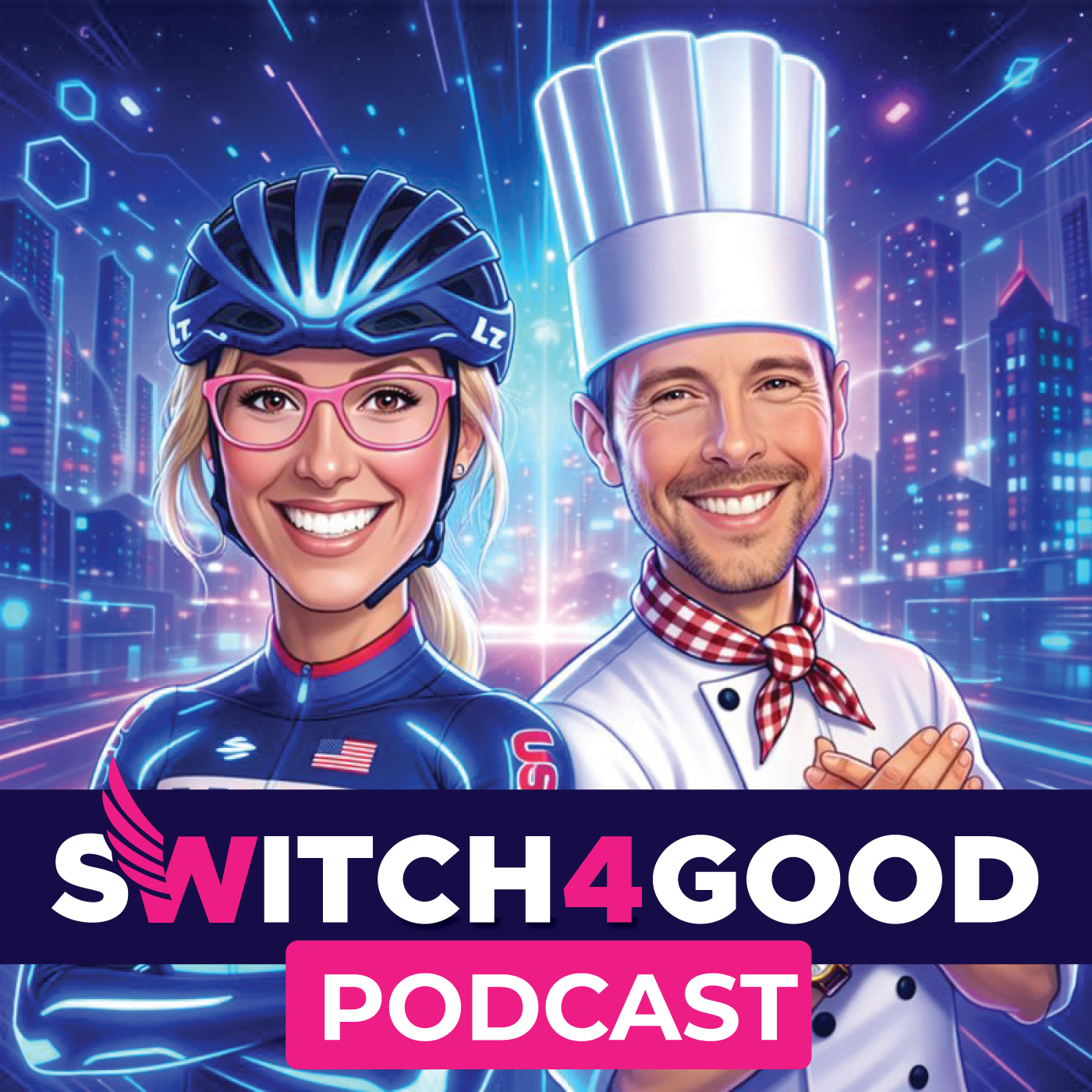
Switch4Good
Dotsie Bausch and Raphael Wrobel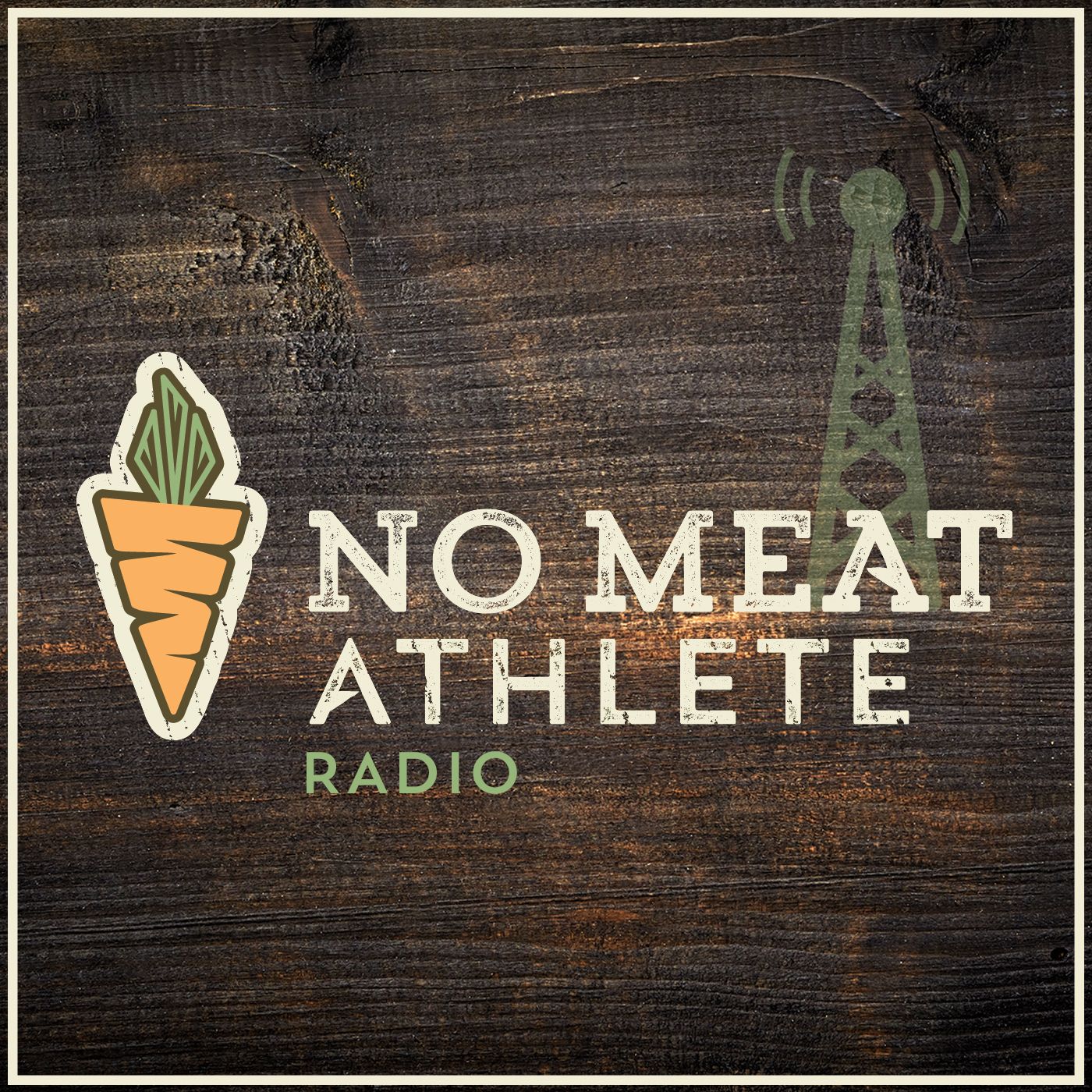
No Meat Athlete Radio
Matt Frazier
The Outlier Health Podcast
Matt Frazier, Matt Tullman, Isabelle Caputo, and Doug Hay
Plant-Powered People Podcast
Toni Okamoto and Michelle Cehn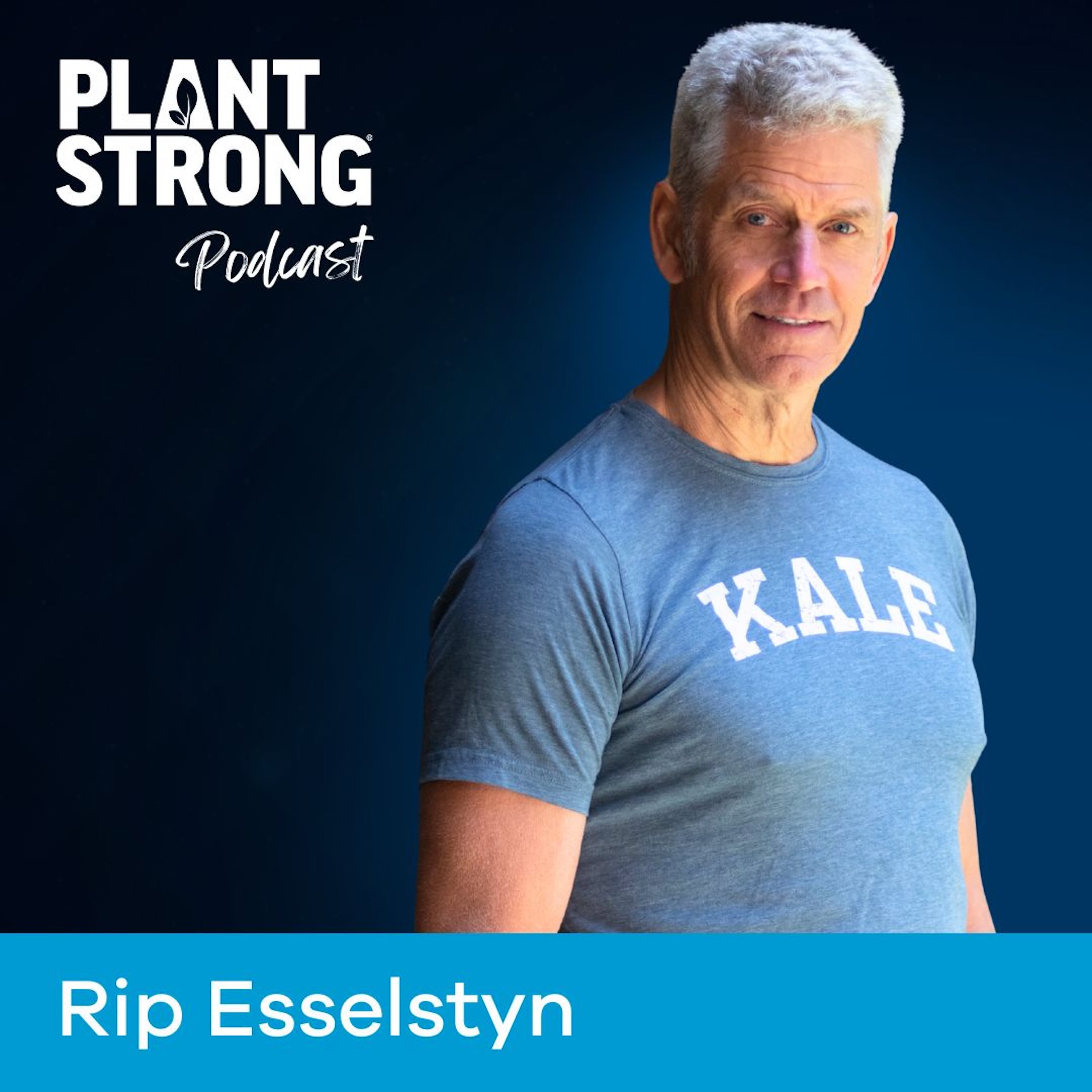
PLANTSTRONG Podcast
Rip Esselstyn
The World Vegan Travel Podcast
Brighde Reed
Vegan Kids Nutrition
Karla Moreno-Bryce, MDA, RD, LD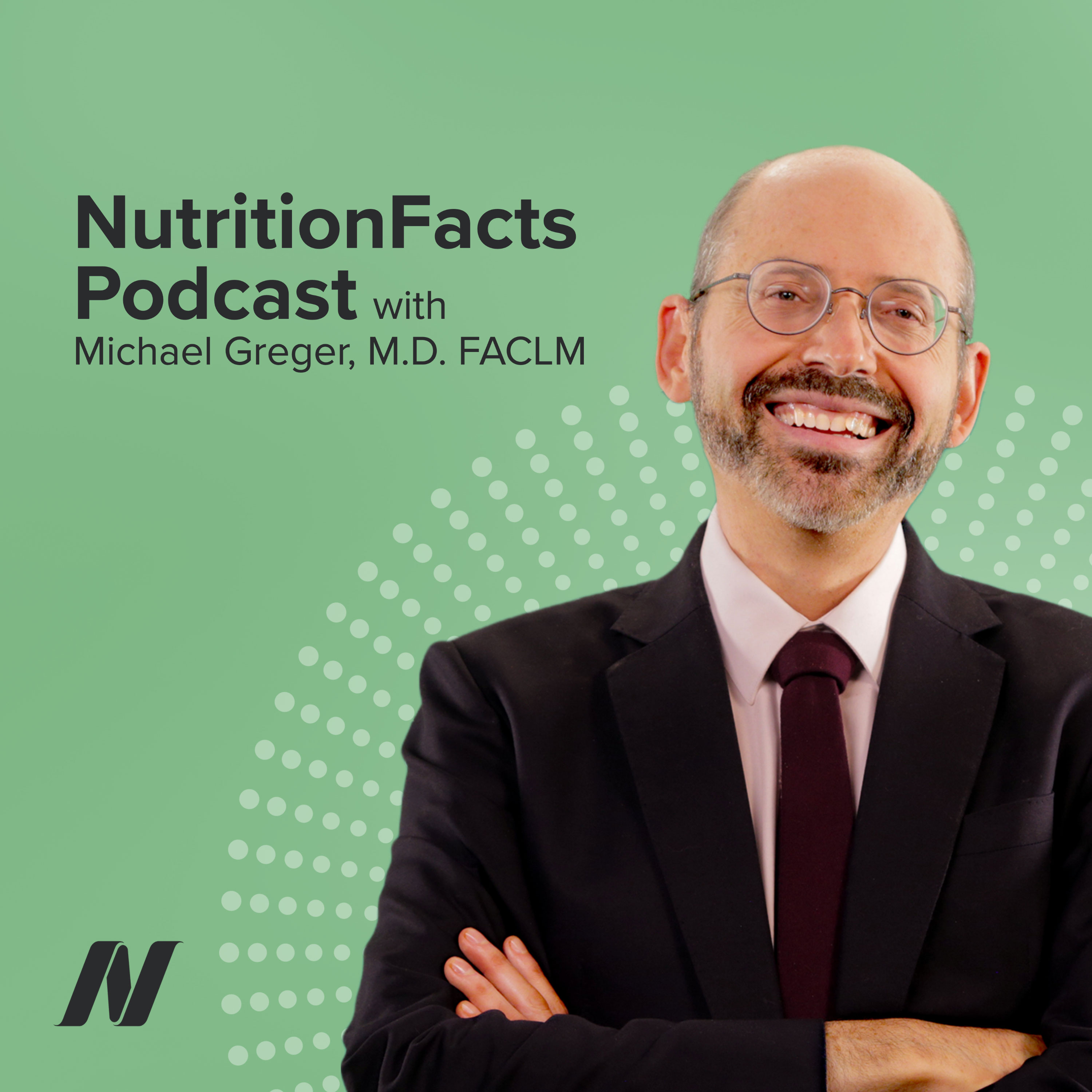
Nutrition Facts with Dr. Greger
Michael Greger, M.D. FACLM
The Plant-Based Morning Show
Matt Frazier & Doug Hay, presented by ComplementThe Plant Based News Podcast
Plant Based News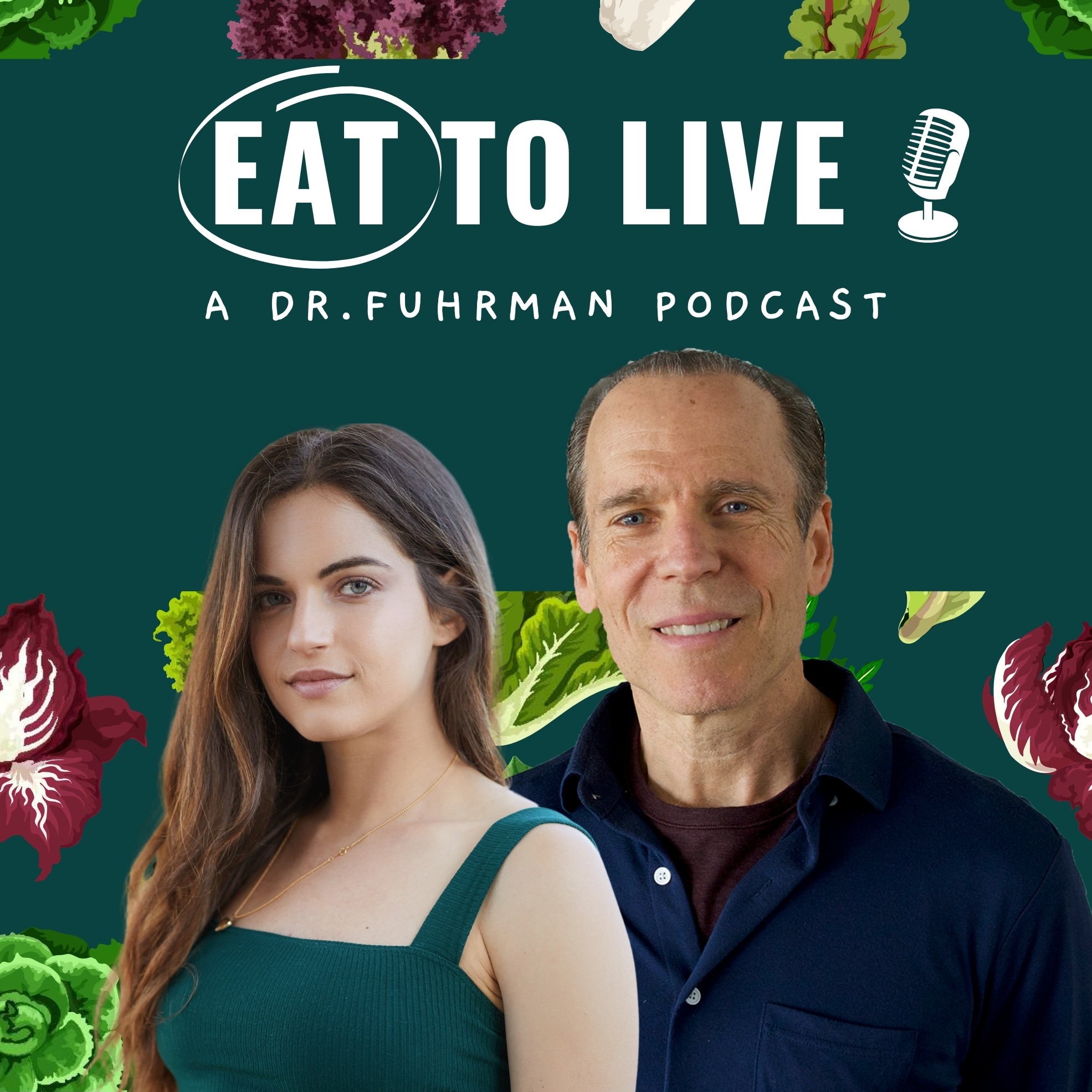
Eat to Live
Jenna Fuhrman, Dr. Fuhrman